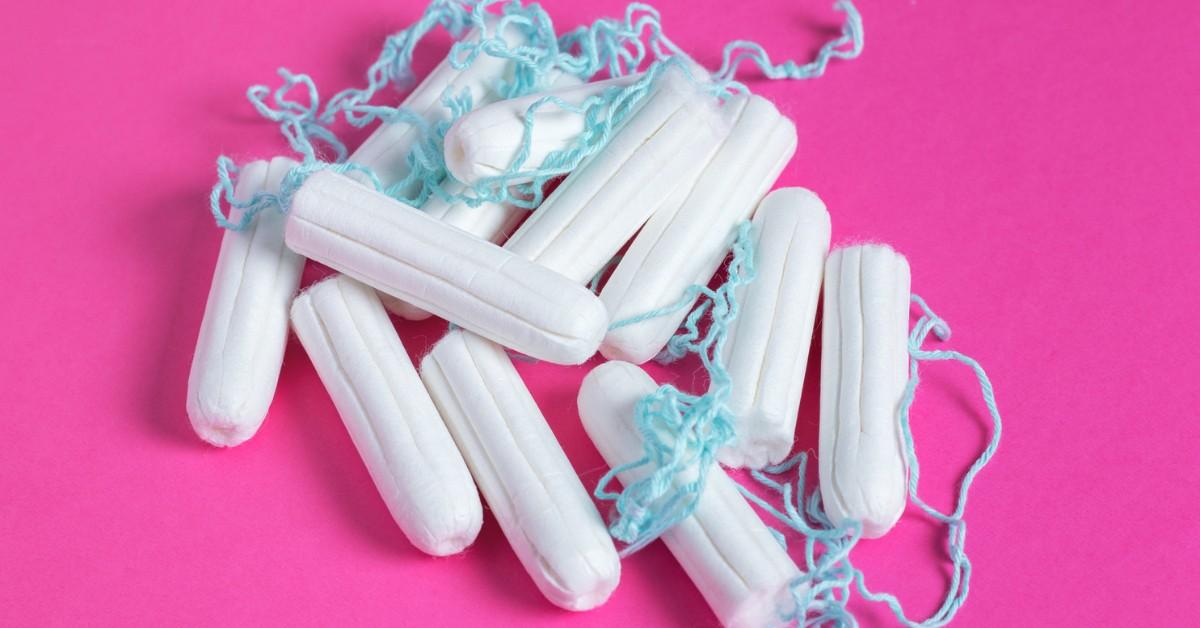Study Finds Toxic Heavy Metals in 14 Brands of Tampons — Use These Tampons Instead
More than half of all people who menstruate are believed to use tampons during their period.
Published July 9 2024, 2:31 p.m. ET

Tampons are a popular way for menstruating folks to deal with their monthly period. And while they’re often touted as being perfectly safe when used as directed, there may be something toxic lurking within the fibers of your favorite tampon brand, according to a study published in 2024.
As if that wasn’t concerning enough, the fact that these devices are used internally, may actually raise your risk of exposure to these dangerous contaminants. Keep reading to learn more about the tampons that tested positive for toxic materials like arsenic and lead, including what you need to know before your next period.

A study found that some tampons contain arsenic and lead.
The study, published in July 2024 in Environmental International, found several toxic metals, including lead, zinc, and arsenic, in multiple brands of tampons. The study evaluated 30 different tampons from 14 brands, searching for concentrations of 16 metal(loid)s. If you've never heard that term before, a metal(loid) is a chemical element that has properties of those you’d expect to find both metal and nonmetal elements, according to Encyclopedia Britannica.
The study included:
- Arsenic
- Barium
- Calcium
- Cadmium
- Cobalt
- Chromium
- Copper
- Iron
- Manganese
- Mercury
- Nickel
- Lead
- Selenium
- Strontium
- Vanadium
- Zinc.
Of the products tested for the study, one tampon was even shown to have traces of all 16 of the metal(loid)s, highlighting just how prevalent they are.
Which brands of tampons contain arsenic and lead?
Tampons made by 14 brands were found to have trace amounts of lead and arsenic, including popular brands Tampax, Kotex, and Playtex. When asked for a list of all of the companies included in the testing, head researcher Jenni Shearston told CBS News that she was unable to provide the names of all the products that had been included in the study. All she could confirm was that these brands are currently sold internationally in places like the U.S., U.K., and Greece.
How toxic are arsenic and lead?
When it comes to the health and safety concerns associated with using products that are known to contain arsenic, the World Health Organization (WHO) says long-term exposure to arsenic – in their example, they describe the kind you might experience from ingesting contaminated water or food – has been shown to cause skin lesions, cancer, cardiovascular disease, and diabetes.
As for lead, WHO says that there are no known safe levels of exposure. They further explain how lead is especially harmful for those of child-bearing age, which it's worth noting is something that just about everyone who uses tampons can be classified as. Some effects of lead exposure include issues within the central nervous system, brain, and cardiovascular system, damage to the kidneys, and a higher risk of high blood pressure, per the WHO.
That said, some experts are not worried about these findings.
“Per this study, the average amount of lead found in tampons was actually very small, and far lower than what is considered concerning in our food or water," OB-GYN and author Dr. Jennifer Lincoln told TODAY. "This doesn’t negate the study’s findings, but it’s an important perspective when people are deciding if they want to continue using tampons or not."
What to use if you're trying to avoid tampons that contain arsenic, lead, or other heavy metals:
If this study has you as shook as it has me, you may be looking for some tampon alternatives that are free of metal(loid)s. After a quick Google I discovered that there are very few tampon companies that come right out and certify that their products don't contain those toxic metals.
An exception to this is Natracare, a nontoxic period care company that claims to have zero traces of heavy metals in its tampons. The brand even released a statement applauding the July 2024 Environment International study.
According to Natracare Founder Susie Hewson, the company commissions tests to a third-party accredited laboratory for heavy metals and PFAS every year.
"These test results of our GOTS certified organic cotton tampons show no detectable traces of heavy metals or other chemicals of concern and are publicly available to offer peace of mind and full transparency," Hewson stated.
If you want to avoid disposable products like tampons altogether, there are some alternatives, like a reusable menstrual cup or menstrual disc, which can be reusable or single-use, and are often plastic-free and made from medical-grade silicone.
No matter how you decide to deal with your menstrual cycle, it's important to be aware of what you are putting in your body, and to make a choice you feel good about.